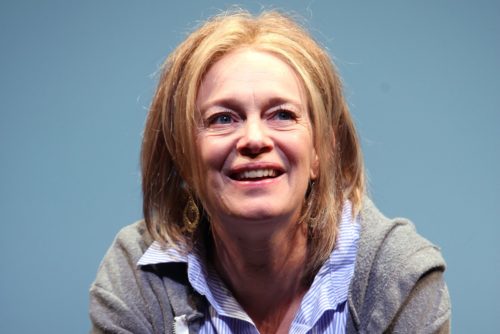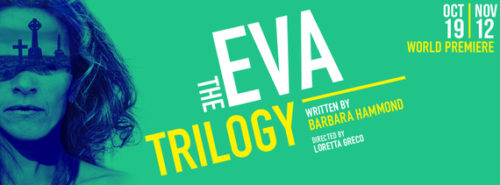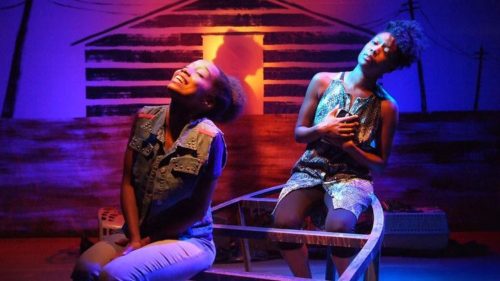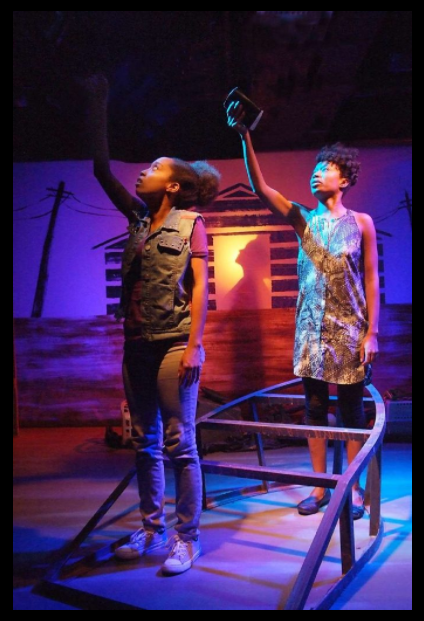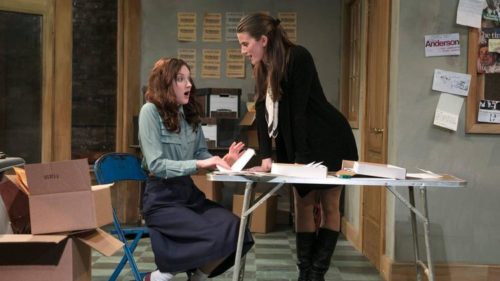
Did you vote for John B. Anderson in 1980?
If you were of age and followed the advice of this newspaper, which endorsed the moderate congressman from Illinois in the Republican primary over Ronald Reagan, you would have placed your trust in the man the Tribune said “best represents the qualities needed to win nomination and election — and having won those to be a strong, effective president.”
But Anderson lost that primary to Reagan and ran instead as an independent candidate, a move too quixotic for the Tribune, which subsequently offered its then-customary support for the Republican nominee, in this case the governor of California. Anderson started strong in the general election but tanked. He eventually got less than 7 percent of the vote.
So what was it like working in one of his campaign offices?
That’s the question posed by “1980 (Or Why I’m Voting for John Anderson),” a highly enjoyable and mercifully unpredictable world-premiere play by the experienced scribe Patricia Cotter, open now for voting at the Jackalope Theatre on Chicago’s North Side. On one level, “1980” is a bit like a sitcom of losers, a kind of “Superior Donuts” or a “Parks and Rec,” only set in a regional Boston office of a failing indie campaign.
You have Brenda (Evelyn Gaynor), the tough office manager with the rough personal life; Robin (Bryce Gangel), the fickle Ivy League slummer; and Kathleen (Hillary Horvath), the naive Southie intern who hates cold-calling but whose coming-of-age story is at the heart of the show. And then there’s Will (Sheldon Brown), the man sent from Chicago by Anderson himself to beef up the Boston operations. A forlorn hope, as it turns out, although he does come to better know himself.
Some of the fun here — and this play really is a good time, especially for political junkies — comes from some “Mad Men”-style anachronistic throwbacks to 1980s mores, replete with Kathleen as the Peggy Olson of the story. But although I think the piece still needs more narrative drive, Cotter is also writing about race and gender in the early 1980s and the era’s mostly flailing attempts to create viable coalitions that might one day stand up to the white male establishment. It’s actually quite a hopeful play, despite its setting amid failure.
All of the performances are strong and generous in director Kaiser Ahmed’s carefully toned production, a zippy show that embraces farce but also personal truth. But the piece belongs to the superb Horvath, who is both very funny as she droops around the office and, as all hope vanishes, exceptionally poignant.
The credo of the office: “Most polls say that if people believe John Anderson can win, he will win.” You don’t doubt the truth of that inconvenient paradox, the Achilles’ heel of every third-party candidate. But it is Horvath’s Kathleen, the character who appears to know the least, who actually knows the most about Anderson’s inevitable doom after she finally sees the candidate. “He looked so boring,” she says, “as if he was in black and white and the rest of the world in color.”
Enter Reagan and a sunrise and the future.
Review: “1980 (Or Why I’m Voting for John Anderson)”
When: Through Dec. 2
Where: Broadway Armory Park, 5917 N. Broadway
Running time: 2 hours, 10 minutes
Tickets: $5-$30 at www.jackalopetheatre.org
Read the full article from the Chicago Tribune here.
